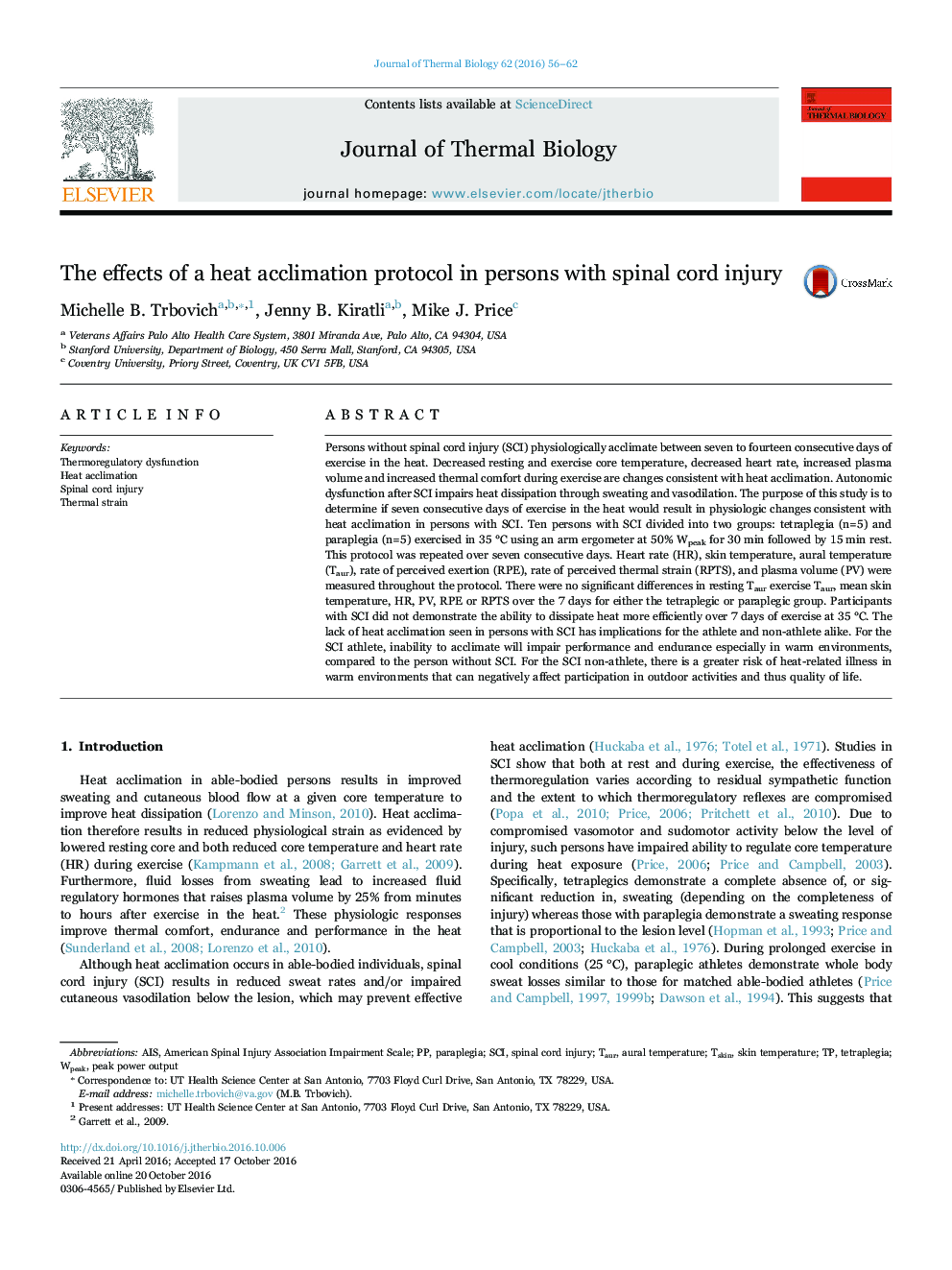| کد مقاله | کد نشریه | سال انتشار | مقاله انگلیسی | نسخه تمام متن |
|---|---|---|---|---|
| 5593496 | 1405085 | 2016 | 7 صفحه PDF | دانلود رایگان |
عنوان انگلیسی مقاله ISI
The effects of a heat acclimation protocol in persons with spinal cord injury
ترجمه فارسی عنوان
اثرات یک پروتکل انطباق گرما در افراد مبتلا به آسیب نخاعی
دانلود مقاله + سفارش ترجمه
دانلود مقاله ISI انگلیسی
رایگان برای ایرانیان
کلمات کلیدی
AISTskinSpinal cord injury - آسیب نخاعیHeat acclimation - انعطاف پذیری گرماTetraplegia - تتراپلژیPeak power output - خروجی قدرت حداکثرSkin temperature - دمای پوستWpeak - سرماخوردگیsci - علمیThermal strain - فشار ترمAmerican Spinal Injury Association Impairment Scale - مقیاس آسیب ناشی از انجمن آسیب نخاع آمریکاparaplegia - پاراپلژی
موضوعات مرتبط
علوم زیستی و بیوفناوری
علوم کشاورزی و بیولوژیک
علوم کشاورزی و بیولوژیک (عمومی)
چکیده انگلیسی
Persons without spinal cord injury (SCI) physiologically acclimate between seven to fourteen consecutive days of exercise in the heat. Decreased resting and exercise core temperature, decreased heart rate, increased plasma volume and increased thermal comfort during exercise are changes consistent with heat acclimation. Autonomic dysfunction after SCI impairs heat dissipation through sweating and vasodilation. The purpose of this study is to determine if seven consecutive days of exercise in the heat would result in physiologic changes consistent with heat acclimation in persons with SCI. Ten persons with SCI divided into two groups: tetraplegia (n=5) and paraplegia (n=5) exercised in 35 °C using an arm ergometer at 50% Wpeak for 30 min followed by 15 min rest. This protocol was repeated over seven consecutive days. Heart rate (HR), skin temperature, aural temperature (Taur), rate of perceived exertion (RPE), rate of perceived thermal strain (RPTS), and plasma volume (PV) were measured throughout the protocol. There were no significant differences in resting Taur exercise Taur, mean skin temperature, HR, PV, RPE or RPTS over the 7 days for either the tetraplegic or paraplegic group. Participants with SCI did not demonstrate the ability to dissipate heat more efficiently over 7 days of exercise at 35 °C. The lack of heat acclimation seen in persons with SCI has implications for the athlete and non-athlete alike. For the SCI athlete, inability to acclimate will impair performance and endurance especially in warm environments, compared to the person without SCI. For the SCI non-athlete, there is a greater risk of heat-related illness in warm environments that can negatively affect participation in outdoor activities and thus quality of life.
ناشر
Database: Elsevier - ScienceDirect (ساینس دایرکت)
Journal: Journal of Thermal Biology - Volume 62, Part A, December 2016, Pages 56-62
Journal: Journal of Thermal Biology - Volume 62, Part A, December 2016, Pages 56-62
نویسندگان
Michelle B. Trbovich, Jenny B. Kiratli, Mike J. Price,
